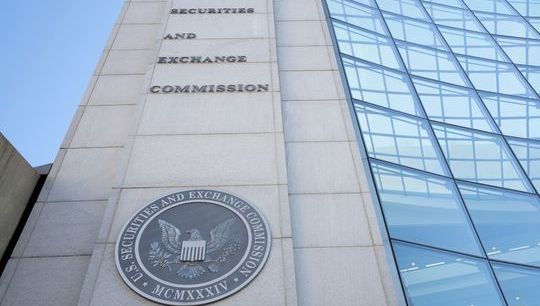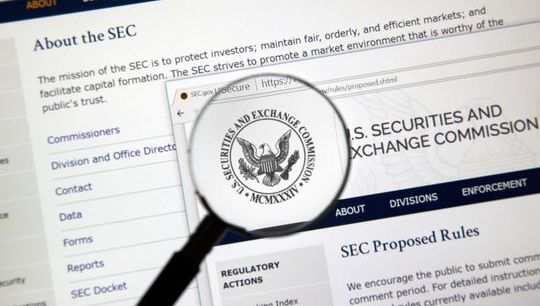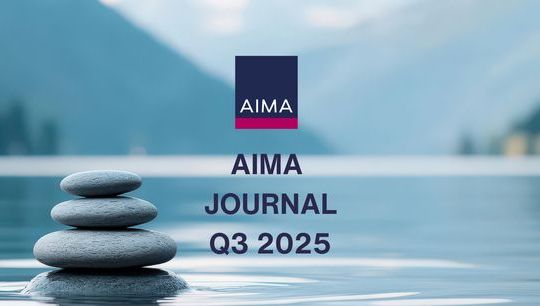The Middle East’s financial renaissance: A new era for hedge funds?
By Junior Damianidis, Citco Middle East Limited
Published: 22 September 2025
In recent years, the Middle East has emerged as a powerhouse in the global financial landscape, attracting some of the world’s most prominent financial executives and institutions. This surge of interest is not merely a passing trend but a calculated move by global financial services giants, recognising the region’s potential and strategic importance in the world of finance.
Key cities such as Dubai and Abu Dhabi in the United Arab Emirates, as well as Riyadh in Saudi Arabia, are witnessing an influx of international financial expertise. This transformation is turning the region into a global hub for hedge fund investment, marking an unprecedented shift in the financial landscape.
Several factors contribute to the Middle East’s growing appeal for hedge funds and other financial institutions. The region offers a combination of low taxes, a favourable time zone that bridges Asian and European markets, and a comprehensive regulatory framework that provides stability and clarity for investors. These advantages have led to a significant increase in Assets Under Management (AUM) in the region, with a remarkable 13% growth to US$2.3 trillion in 2023 alone.
This financial boom aligns perfectly with the ambitious economic diversification initiatives undertaken by countries in the region. The UAE, Saudi Arabia, and Qatar are actively working to move beyond their traditional oil-dependent economies through visionary programmes such as Vision 2021 and Vision 2030. These strategies focus on developing a wide range of sectors, including technology, tourism, healthcare, and renewable energy, creating a wealth of new investment opportunities for hedge fund managers.
A key indicator of this economic transformation is the robust Initial Public Offering (IPO) market in the UAE. In 2024, the country witnessed eight significant IPOs, demonstrating the region’s growing appeal to both local and international investors. The Abu Dhabi Securities Exchange (ADX) saw listings from Lulu Retail, NMDC Energy, ADNH Catering, Agility Global, and Alef Education, while the Dubai Financial Market (DFM) welcomed Talabat, Parkin, and Spinneys. Notably, Talabat’s US$2 billion IPO on the DFM in November and Lulu’s listing collectively raised US$3.7 billion, accounting for about half of the total IPO proceeds in 2024.
The numbers speak for themselves. Abu Dhabi Global Markets (ADGM) has experienced an extraordinary 226% increase in assets under management, attracting global financial giants and cementing its position as a key player in the financial world. This growth is particularly significant for hedge funds looking to expand their presence in emerging markets and capitalise on new opportunities.
Saudi Arabia, under the transformative Vision 2030 plan, has positioned Riyadh as a hedge fund powerhouse. The implementation of sweeping economic and regulatory reforms has created a robust investment ecosystem, attracting global capital and fostering local market development. This environment is particularly conducive to hedge funds seeking new opportunities and market inefficiencies to exploit.
Dubai, already recognised as one of the world’s fastest-growing financial centres, is experiencing a significant rise in hedge fund activity. These funds play a crucial role in enhancing market liquidity and contributing to the region’s high-growth sectors. The city’s appeal is further enhanced by its concentration of wealth, with over 72,000 millionaires calling Dubai home – triple the number of any other city in the region and the third-largest concentration of wealthy individuals within the BRICS bloc.
The success of hedge funds in the Middle East hinges on their ability to navigate the region’s complexities. While the Gulf States offer attractive opportunities, success requires a thorough understanding of local laws, customs, and business practices. Financial centres like ADGM, the Dubai International Financial Centre, and Riyadh have established innovative regulatory frameworks and business-friendly policies, including tax incentives that are particularly appealing to hedge fund managers.
Technology plays a pivotal role in this evolving landscape. The complexity of hedge fund strategies demands sophisticated technological solutions. Digital transformation, including cloud-based solutions, digital platforms for investor communications, and artificial intelligence (AI), has become essential for success. AI-powered tools are revolutionising risk management, trade execution, and data analysis, enabling more efficient operations and better decision-making.
Sovereign wealth funds in the region, such as the Public Investment Fund (PIF), Abu Dhabi Investment Authority (ADIA), and Qatar Investment Authority (QIA), have become significant global investors and pioneers of digital transformation. These funds have substantially expanded their investment portfolios beyond traditional oil revenues, strategically deploying capital across international markets. They embrace cutting-edge technologies across their operations, utilising artificial intelligence for market analysis, blockchain for transaction transparency, and advanced data analytics for portfolio optimisation.
The region’s financial hubs are also undergoing rapid digital transformation while expanding their investment offerings. The Dubai Financial Market, Abu Dhabi Securities Exchange, and Saudi Stock Exchange (Tadawul) have implemented state-of-the-art trading platforms and market monitoring systems.
This technological advancement supports a broader range of investment products, from traditional equities to digital assets, requiring more robust investment management solutions.
As the Middle East continues to evolve as a global financial hub, it presents unprecedented opportunities for hedge funds and financial institutions. The region’s combination of strategic location, favourable regulatory environment, technological advancement, and economic diversification initiatives makes it an attractive destination for global investors. The influx of top financial talent and institutions is not only reshaping the regional financial landscape but also influencing global investment trends.
In conclusion, the Middle East’s financial renaissance indeed represents a new era for global hedge funds. As the region continues to attract top talent and institutions, it is poised to play an increasingly significant role in shaping the future of global finance.
The convergence of traditional financial expertise with cutting-edge technology and innovative economic strategies is creating a dynamic and exciting environment for investors and financial professionals alike. As this transformation unfolds, the Middle East is set to cement its position as a key player in the global financial ecosystem, offering unparalleled opportunities for growth and innovation in the years to come.
Financial centres like ADGM, the Dubai International Financial Centre, and Riyadh have established innovative regulatory frameworks and business-friendly policies, including tax incentives that are particularly appealing to hedge fund managers.






